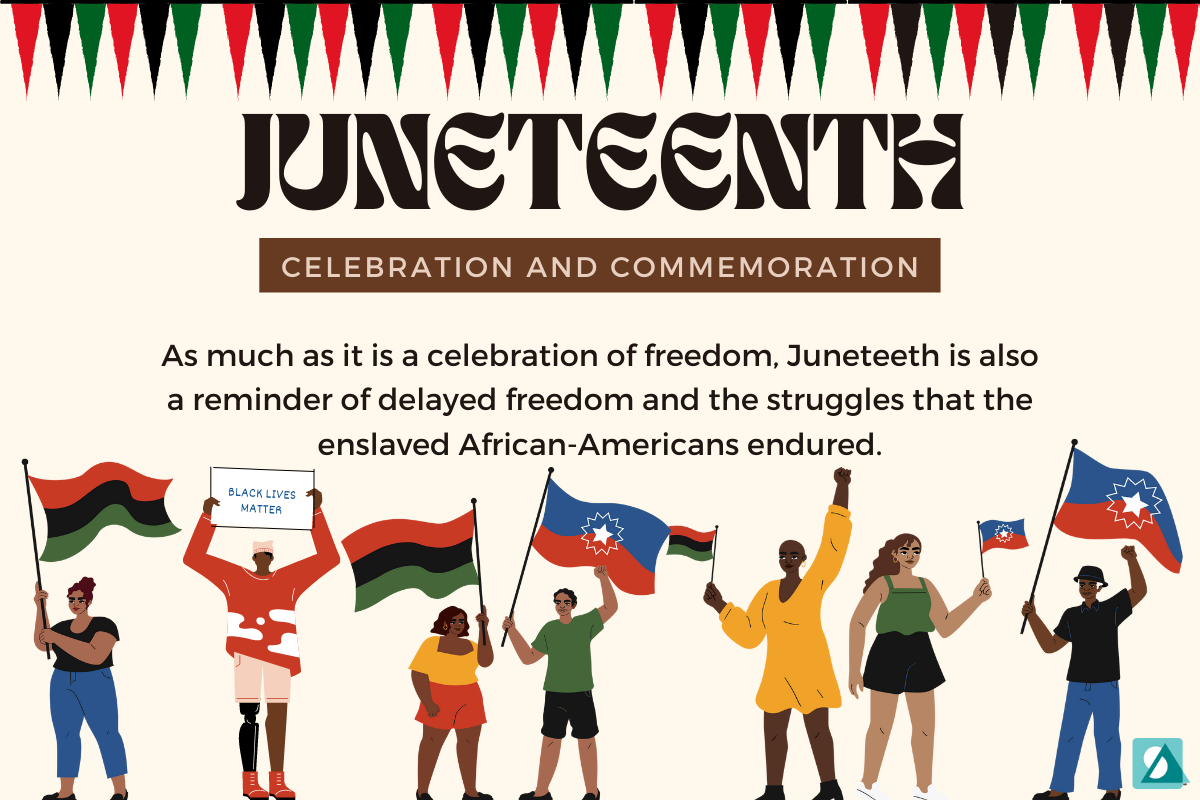On January 1, 1863, “…all persons held as slaves within the (States in rebellion) shall be then, thenceforward, and forever free…” President Abraham Lincoln declared. But the Emancipation Proclamation did not end slavery: Freedom was won through a series of battles across the South and instituted state by state. Nearly 200,000 Black soldiers joined the Union military effort after Lincoln’s declaration in 1863.
In Galveston, Texas, on June 19, 1865, Union Major General Gordon Granger issued General Order Number 3:
“The people of Texas are informed that in accordance with a Proclamation from the Executive of the United States, all slaves are free.” The day would come to be known and recognized as “Juneteenth.”

I was fortunate enough to have learned about Juneteenth as a youth. My father was a history buff and an activist. He encouraged me to “discover more… and do the math…”.
My history classes couldn’t give me any insight into the holiday, nor could I find information in my textbooks. My public library, however, had all the information I could consume. Then I did the math.
- What happened to enslaved people in the South during the two years between the Emancipation Proclamation and Juneteenth?
- What if you lived in the South and knew about the Emancipation Proclamation, but your enslaver refused to free you?
- What was the difference between the President’s Proclamation in 1863 and Major General Granger’s Order in 1865? Why did the Proclamation get ignored?
- Why did General Granger issue the Order on that date?
- How did life change for formerly enslaved people on June 20, 1865?
- Did some people remain enslaved? Was it by force or by choice?
- What happened in areas outside of Galveston, Texas? Were enslaved people freed?
The system of governance failed to provide timely notification and support for a segment of the American population. For two years, people remained enslaved despite the President’s Proclamation. My younger self was confused, angry, motivated, and disappointed when I learned this.
As a teacher, I realized why Juneteenth wasn’t included in the history books of my youth. It represents some of the worst and the best in people, racism, and economic subjugation. It represents patience, faith, and commitment. Teachers that choose to address Juneteenth in their classrooms often find themselves looking for content to support their instruction. Once that instructional content is available, teachers face the challenge of the emotional impact that Juneteenth creates.
Texas officially recognized Juneteenth as a state holiday in 1980, becoming the first state in the nation to do so. Juneteenth is now formally recognized by 47 states. In June 2021, President Joe Biden signed a law designating Juneteenth as a national holiday observed every June 19th.
Across the country:
Less than 10% of total history class time is devoted to teaching Black history, according to a 2016 survey conducted by the Smithsonian National Museum of African American History and Culture.
According to a CBS investigative report in 2020, Black history is taught across the United States. However, seven states do not directly mention slavery in their state standards, and eight states do not mention the civil rights movement. Twenty-one states are currently considering laws to restrict how teachers can discuss racism and slavery.
 Timing is everything. Juneteenth is a day of celebration and a day of resolve. Juneteenth is a reminder that laws do not govern freedom. People do. Juneteenth is a reminder that timing is everything and history will not be forgotten. The time is now. Juneteenth is a reminder that freedom is not a decision. It is our inherent state of being.
Timing is everything. Juneteenth is a day of celebration and a day of resolve. Juneteenth is a reminder that laws do not govern freedom. People do. Juneteenth is a reminder that timing is everything and history will not be forgotten. The time is now. Juneteenth is a reminder that freedom is not a decision. It is our inherent state of being.

2022 – Category Winner of Excellence in Equity: Best Support for English Learners
Related Links:
- Podcast: The Equity Impact of Understanding Academic Language (01/29/2023)
- Podcast: Phenomenal Spotlight: What Is Speak Agent? (Part 1) (09/10/2022)
- Equity+Speak Agent Overview Document
- Equity Through Language Acquisition
- Math + Language = Equity
- The Students We Serve
Other Good Reads:
- ClassTech Tips Blog: How to Learn Math and Science with Language Support
- eSchool News: How a Major MD District Boosted Middle Math Achievement





